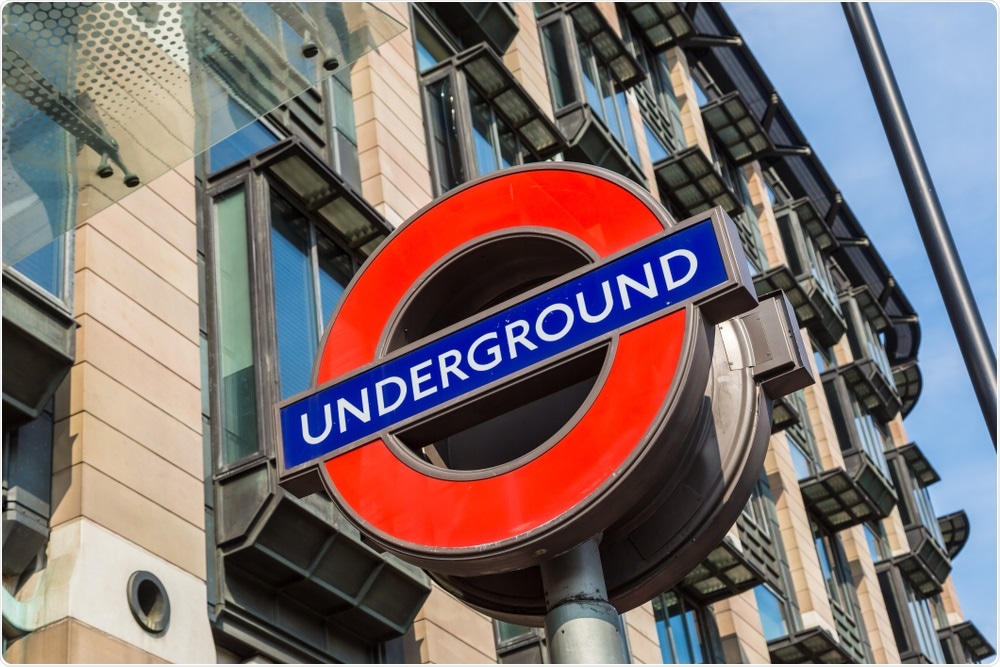A new report by the Committee on the Medical Effects of Air Pollutants has revealed that the air within the London Underground (or ‘the Tube’) is 30 times more polluted than the air surrounding London’s busiest roads.
 S-F | Shutterstock
S-F | Shutterstock
The report suggested that traveling the same by bus would expose passengers to only around one-third of the particulate matter (PM) present within the London Underground.
Researchers found that in general, the London Underground is the most polluted underground railway system in the world when compared to other subways.
The reasons attributed for this include the age of the system and the extensive use of deep tunnels with inadequate air circulation.
The health effects of such high exposures are not clear at present, according to Committee Chairman Frank Kelly.
The report followed ten days of testing for PM performed at the deepest station in the LU, namely, Hampstead Station on the Northern Line.
The Committee’s attitude towards the results was that further study was required to understand the implications, but implied that they were unlikely to be dangerous for commuters.
These particles are of a different nature from the ones above ground so we are uncertain about their health effects."
Professor Frank Kelly, Committee Chairman
The committee was appointed by Transport for London (TfL), which claims that dust levels within the Tube are carefully monitored.
We closely monitor dust levels on the Tube and, through a wide range of measures, ensure that particle levels are well within Health & Safety Executive guidelines.”
Peter McNaught, TfL Director of Asset Operations.
McNaught pointed out that though the report found high PM levels in the tube, no guidelines were violated, making their effects uncertain.
McNaught finished by saying that TfL was determined to achieve the highest possible standards of air quality.